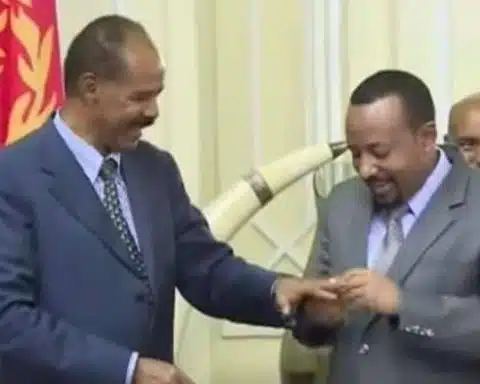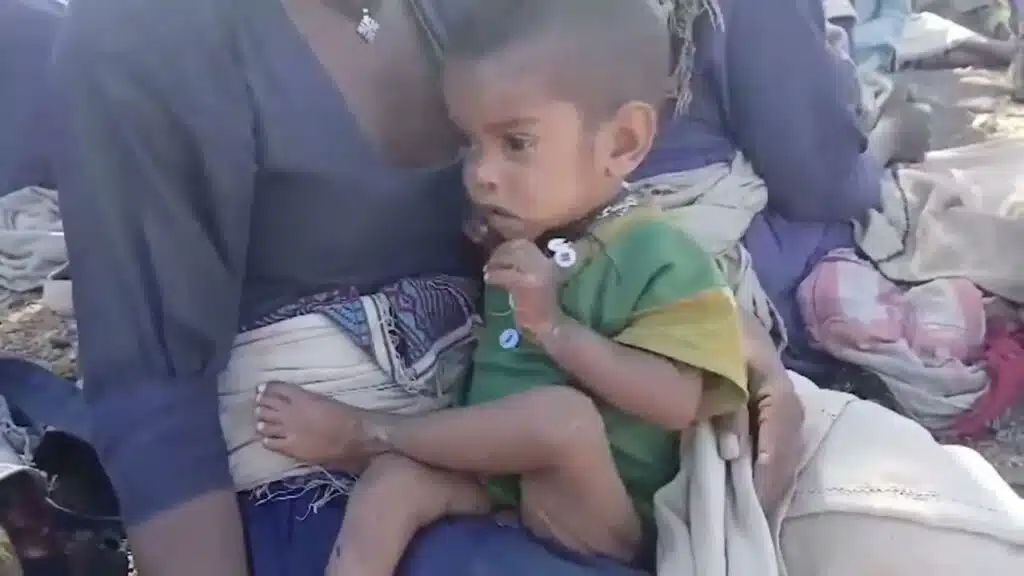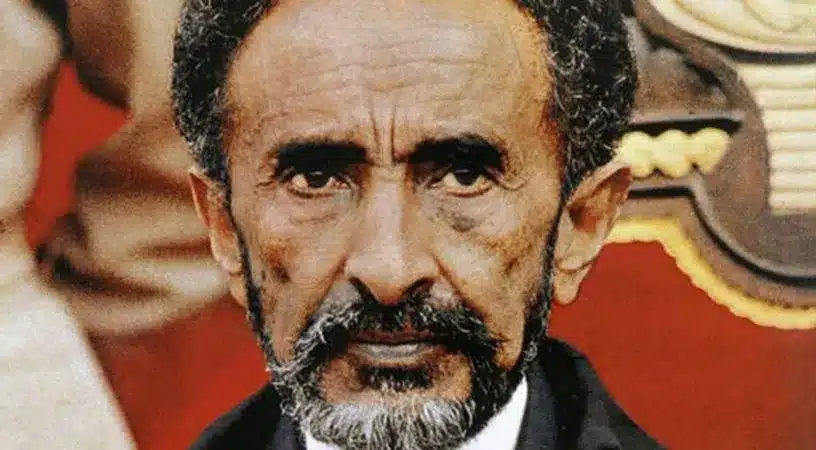 In the panorama of global governance, a handful of nations consistently find themselves under criticism for their poor leadership and mismanagement, often leading to dire consequences for their citizenry. Among these, Ethiopia stands out – a country throttled by rampant corruption, gross human rights violations, and stifling authoritarianism. This article will delve into why Ethiopia is considered one of the ‘worst governments in the world,’ highlighting examples of its governance setbacks, social unrest, and political repressions. You may be surprised at the depth and breadth of problems this East African nation contends with every day. Stay tuned to understand why better governance is a critical need for Ethiopia and why the world should care.
In the panorama of global governance, a handful of nations consistently find themselves under criticism for their poor leadership and mismanagement, often leading to dire consequences for their citizenry. Among these, Ethiopia stands out – a country throttled by rampant corruption, gross human rights violations, and stifling authoritarianism. This article will delve into why Ethiopia is considered one of the ‘worst governments in the world,’ highlighting examples of its governance setbacks, social unrest, and political repressions. You may be surprised at the depth and breadth of problems this East African nation contends with every day. Stay tuned to understand why better governance is a critical need for Ethiopia and why the world should care.
Historical Context of Ethiopian Governance
Pre-20th Century Rule
Monarchical System
Understanding the historical context of Ethiopian governance is crucial to comprehend the current situation and its challenges. Deep-rooted in the heart of the pre-20th century Ethiopian civilization was a strong monarchical system. The monarchy boasted of longevity, stretching back thousands of years, garnering the title as one of the longest lasting monarchies in the world. Rulers, also known as Emperors, claimed divine right by associating their lineage with King Solomon and the Queen of Sheba. Their dominion over territories was a blend of feudal, autocratic, and centralized models of governance.
Colonial Influence
Ethiopia remained one of the few African countries that was never fully colonized. Still, it was not completely shielded from the impact of European colonial influence during the Scramble for Africa. Italy, under the rule of Benito Mussolini, occupying Ethiopia from 1936 to 1941, aimed to establish the Italian East Africa. This brief colonial phase disrupted the status quo. However, Emperor Haile Selassie’s successful diplomatic efforts led to Ethiopia’s liberation, reinforcing the strength and resilience of the Ethiopian governance system.
20th Century Political Evolution
The Derg Regime
Delving further into the 20th-century governance, the picture begins to change following the fall of Emperor Haile Selassie in 1974. A radical Marxist military junta called the Derg, led by Mengistu Haile Mariam, toppled the monarchy and took over. The reign of the Derg marked a violent and repressive period in Ethiopian governance, often referred to as the “Red Terror”, where dissidents were purged, nationalization of land occurred, and famine struck the country hard.
Fall of the Monarchy
The fall of the monarchy and the implementation of a communist structure of governance was a watershed moment in the history of Ethiopia. This shift provoked significant turbulence and conflict within the socio-political framework of the nation. The emphasis turned away from traditional forms of governance towards a new Marxist-Leninist paradigm. This transition, fraught with political strife, economic turmoil, and human rights abuses, significantly altered the course of Ethiopia’s history.
Current Governance Challenges in Ethiopia
In recent years, Ethiopia has been grappling with several governance-related dilemmas that have dragged this East African nation into the spotlight. The challenges encompass two major contours: political instability and alarming human rights concerns.
Political Instability
Political instability is a recurring theme in Ethiopian governance, with roots in ethnic conflicts and a high rate of dispersive leadership changes.
Ethnic Conflicts
Ethnic conflict is not new to Ethiopia, but has seen a resurgence in recent times. The country’s ethnic-based federal system, implemented following the fall of the Derg regime, breeds discord among over 80 different ethnic groups, each vying for political power and cultural recognition. This system has led to mass displacements, bloody confrontations, and even accusations of ethnic cleansing, further exacerbating the state of political instability. Such ethnic conflicts pose a serious challenge to effective governance and present a significant obstacle in achieving national cohesion.
Frequent Leadership Changes
Frequent leadership changes in Ethiopia contribute to an on-going state of political instability. These changes often occur abruptly and without peaceful transition, causing ruptures in governance and inconsistencies in policy direction. Institutional memory loss, lack of clear succession planning, and incessant political wrangling are some characteristics of this issue, forming a volatile political environment.
Human Rights Concerns
Parallel to the issue of political instability, Ethiopia is facing serious human rights issues. The two most critical ones involve the violation of freedom of speech and the suppression of protests.
Freedom of Speech Issues
Ethiopia has been criticized for its poor record on freedom of speech. Journalists, bloggers, and critics of the government are frequently targeted, leading to self-censorship or exile. Draconian laws such as the Anti-Terrorism Proclamation have been used as tools to suppress dissent and muzzle critical voices, raising serious concerns about the state of the country’s democracy.
Suppression of Protests
Ethiopia has a notorious reputation for suppressing public protests. Peaceful demonstrators voicing legitimate concerns are often met with excessive force, resulting in injury and even death. Furthermore, the imposition of internet blackouts and states of emergency to quell unrest have further entrenched the cycle of silence and fear.
In closure, the current climate of governance in Ethiopia is fraught with several challenges. The ripple effects of these issues have far-reaching implications not only for Ethiopia’s prospects of peace and stability but also for its position on the international stage.
Economic Implications of Governance
One has to consider the economic cost that comes with worst forms of governance, such as that in present-day Ethiopia. Weak governance structures not only undermine democracy but they also give rise to a host of economic challenges. The two primary areas where economic implications are most apparent include the impact on economic development and issues related to corruption and mismanagement.
Impact on Economic Development
A robust and sustainable economy requires a sound political environment to thrive, which is currently lacking in Ethiopia.
Investment Challenges
Despite Ethiopia’s vast physical resources and young labor force, the country grapples with investment challenges mainly due to frequent policy changes and instability. Foreign investors are often reluctant to invest because of the political hazards, making it a major obstacle to Ethiopia’s economic growth. Moreover, unpredictable government regulations discourage domestic investors leading to lower levels of local entrepreneurship and innovation.
Infrastructure Issues
Infrastructure development is a catalyst for economic progress. However, Ethiopia faces significant infrastructure issues. Yet again, the problem is not a dearth of resources, but a substantial gap in effective governance leading to poor planning and execution of infrastructure projects. Roads, railways and airports are frequently out of service due to inadequate maintenance, obstructing trade, and economic activities.
Corruption and Mismanagement
Corruption and mismanagement have long plagued Ethiopia’s political landscape, thus derailing its economic progress.
Public Funds Misuse
Dismally, public funds misuse is a common narrative in Ethiopia. Despite receiving significant resources from international aid, tax revenues, and debt hull, it is reported that these funds often end up in private pockets rather than being used for public services. This translates into poor quality of education, health services, and other social amenities, thereby deteriorating the economic conditions of everyday Ethiopians.
Transparency Issues
Another facet of Ethiopia’s poor governance is its transparency issues. Without transparency, corruption thrives. The government has been criticized for its opaque handling of public finances, and the embezzlement of state resources continues unabated. This low accountability prevalence hurts the public’s confidence, discourages investment, and further hampers Ethiopia’s economic progress.
The workings of the ‘The Worst Governments in the World’ often resonate within a country’s economy, and Ethiopia, unfortunately, is no exception. Its current governance challenges act as a bottleneck, hindering it from realizing its full economic potential.
International Relations and Foreign Policy
Within the complex puzzle of the worst governance in the world, Ethiopia’s international relations and foreign policy form substantive pieces. By zooming into Ethiopia’s handling of regional conflicts and global perceptions, it’s possible to discern the troubled trajectory of this nation on the international stage.
Regional Conflicts
Border Disputes
One of the critical aspects of regional instability revolves around border disputes. Particularly, Ethiopia’s long-standing disputes with Eritrea have exacerbated the political climate influencing both domestic and international perceptions of Ethiopian governance. The Ethio-Eritrean border conflict, a contentious issue dating back to 1998, resulted in two years of armed conflict and decades of military tension. While the 2018 peace agreement looked promising, sporadic border clashes continue, adding to the structural deficiencies of Ethiopia’s governance.
Diplomatic Challenges
As if border disputes weren’t enough, Ethiopia has been grappling with diplomatic challenges, further muddying the international relations waters. Ethiopia’s involvement in the contested Grand Ethiopian Renaissance Dam project has strained relations with downstream Egypt and Sudan. The failure to reach a consensus on issues surrounding this dam project has raised a lot of eyebrows globally about Ethiopia’s diplomatic acumen.
Global Perceptions
Reputation on the World Stage
The Ethiopian government’s reputation on the world stage is another point that warrants attention. The volatile internal political situation and regional conflicts have painted an unflattering picture of Ethiopia’s governance to the global community. The ongoing civil war in the Tigray region, coupled with severe human rights violations, has only served to sour Ethiopia’s international image further.
International Aid Dependence
Equally concerning is Ethiopia’s dependence on international aid, which reflects poorly on the country’s economic policies and governance mechanisms. Despite having one of the fastest-growing economies in the world, Ethiopia is heavily reliant on foreign aid to support its developmental programs. Such reliance discloses a critical failure of the Ethiopian government in building a self-sustaining economy and reveals yet another dimension to its questionable governance.





